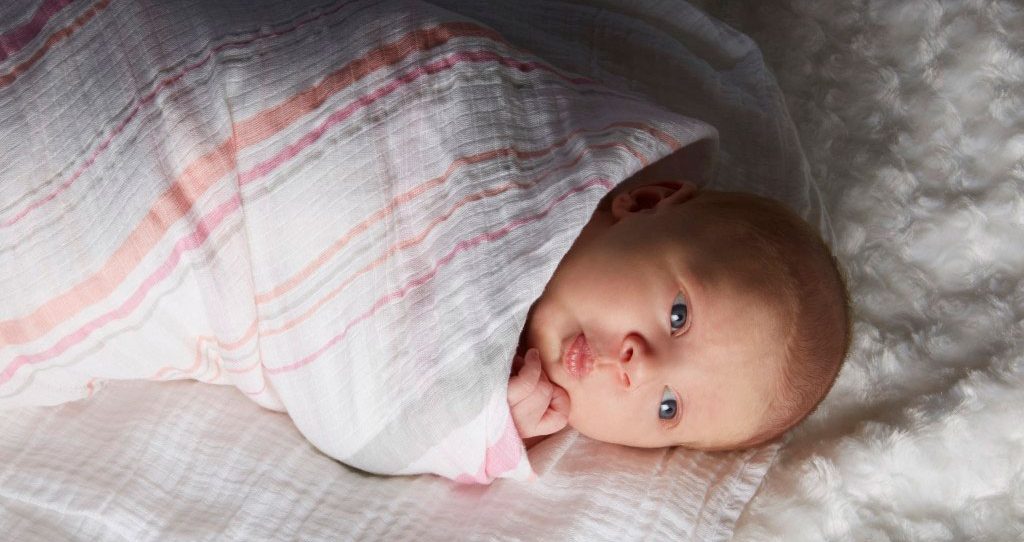Good Bedtime Habits for Your Baby

While your new baby will set his or her own sleep schedule — and yours — the baby will eventually become a better sleeper. Here's what you can do to help.
New parents are well aware that, when their baby doesn’t sleep, they don’t sleep. That’s probably why sleep issues rank as one of the biggest concerns parents report to their pediatrician. Most babies will eventually become better sleepers, but some are slower to drift off than others.
“By six months of age, most babies sleep through the night, awakening their mothers only about once per week,” said Marsha Weinraub, PhD, a professor of psychology at Temple University.
YOU MIGHT ALSO LIKE: Can You Sleep with Your Baby?
If your baby resists sleep night after night, it can take a toll on your mental health. Mothers of infants with sleep problems are more likely to be depressed. One of the best ways to help your baby fall asleep more easily, and stay that way through the night, is to get her into a routine.
Set a bedtime
Newborns aren’t born understanding that nighttime is for sleep and daytime is for wakefulness. They sleep up to 17 hours throughout the day and night, without much of a pattern. Babies have to be trained to sleep after the sun goes down and wake up when it rises again, a cycle known as the circadian rhythm.
Putting your baby to sleep at the same time every night can help solidify that rhythm. “Keeping a very regular sleep schedule is incredibly important,” said Roseanne Armitage, PhD, director of the Sleep and Chronophysiology Laboratory at the University of Michigan. “The more stable the bedtime the less chaotic sleep is during the night.”
Establish a pre-bed routine
What you do with your baby right before bed can set the stage for a more restful night. A study by researchers at Saint Joseph’s University in Philadelphia, Pa., found that a nightly bedtime routine helped babies fall asleep faster and stay asleep longer. When babies slept better, their mother’s mood improved, too.
“There is no question that maternal mood and children’s sleep impact one another. The better a child sleeps and the easier bedtime is, the better a mother’s mood is going to be,” said study author and psychology professor, Jodi Mindell, PhD. “In addition, a mom who is not feeling tense, depressed, and fatigued is going to be calmer at bedtime, which will help a child settle down to sleep.”
Bedtime rituals used in the study included a bath, massage, and quiet activities such as cuddling and singing lullabies. Then, parents put their baby to sleep while they were still awake, or gently rocked them to sleep.
You can try those methods, or use other techniques if they work better for you. Just be consistent. Go through the same activities, in the same order, each night (such as bath, story, song, and bed). Set the mood for sleep, dimming the lights and keeping the house quiet. You should find that, within a few weeks, your baby acclimates to the new routine and has an easier time falling asleep.
YOU MIGHT ALSO LIKE: Guide for First-Time Moms
When your baby refuses to sleep
What if you’ve soothed, rocked, bathed, massaged, and tried everything else you can think of, but your baby still won’t fall asleep or sleep through the night? An estimated 20 to 30 percent of babies continue to have difficulty sleeping at six months.
If your infant is slow to commit to a schedule, you can try a few different techniques that have been touted to help babies sleep through the night. One of the best known is a technique developed by Richard Ferber, MD, a pediatric sleep specialist at Boston Children’s Hospital.
The Ferber method involves putting your baby to sleep drowsy. When she cries, you wait a few minutes to go in and console her. Each time she cries, you increase the length of time you wait (5 minutes, then 10 minutes, then 15 minutes) until she’s able to fall asleep on her own.
Parents who have a hard time listening to their baby cry can try a method of gradual removal. For the first couple of nights, sit in a chair next to your baby’s crib and wait until he falls asleep to leave. On each subsequent night, move your chair farther and farther away from the crib. Eventually, you’ll be out in the hall. After about two weeks of this gradual process, your baby should be able to fall asleep without you.
Not every baby will respond in the same way to these methods. If yours is especially resistant, and your sleep is suffering as a result, see your pediatrician or a pediatric sleep specialist for advice.
Updated:
August 31, 2023
Reviewed By:
Janet O’Dell, RN